Due to the pandemic, and the varying degree to which teams throughout the world could meet in person and get access to their equipment, the FIRST Robotics Competition (FRC) suspended all in-person play for the regular 2021 season and implemented a fully virtual set of competitions for teams that were able to participate. Internationally, 3,075 teams (about three-fourths of all existing teams) were able to register and participate in these competitions. Many schools, even some in Wisconsin, did not allow their teams to register due to restrictions on extra-curricular activities. Ferradermis, Whitewater High School’s team, has been able to meet in person in small groups since the beginning of November. We also had a group of students who chose to remain fully virtual and were integral parts of the administrative and CAD teams.
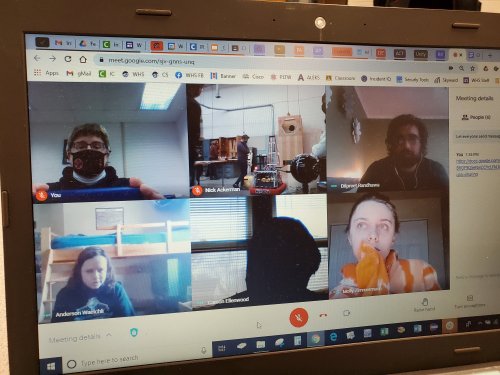
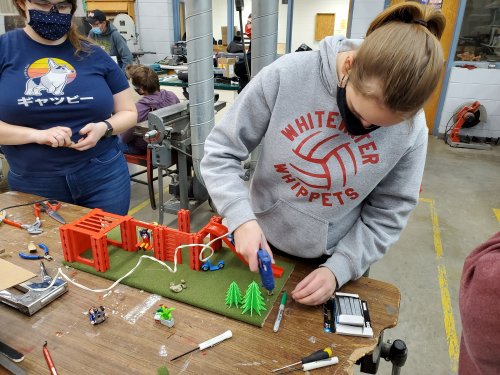
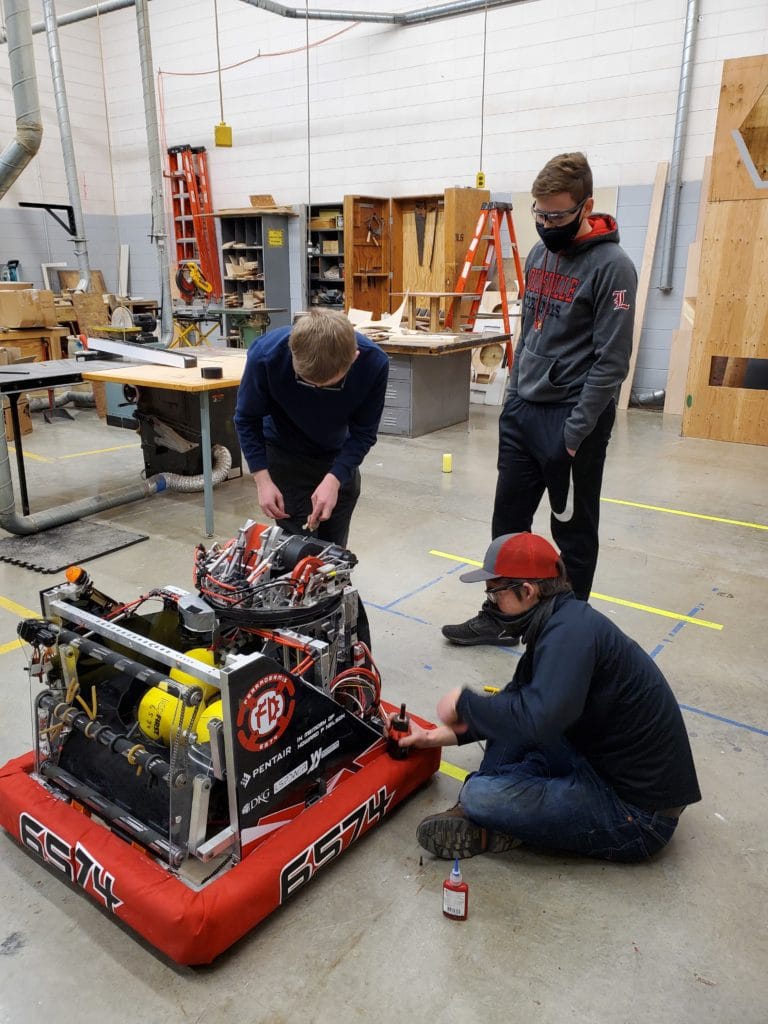
For the traditional Chairman’s, Woodie Flowers, and Dean’s Lists awards, Ferradermis was grouped with the other 29 participating Wisconsin teams. During Spring Break, students took part in virtual interviews with judges for both Chairman’s and Dean’s List. Chairman’s focuses on all non-robot parts of a team including community outreach, diversity, and impact on students during the previous five years. Administrative Team Members Anderson Waelchli, Carson Ellenwood, and Molly Zimmermann put together a 7-minute presentation around the theme of, “staying connected,” for Chairman’s which they delivered prior to a 5 minute Q & A session with the judges. Team members can nominate one mentor for the Woodie Flowers Award, and this year the students selected co-head coach Dilpreet “Chief” Randhawa, who has been with the team since it first formed five years ago. Mentors nominate up to two sophomore or junior students for Dean’s List; this year the candidates for Dean’s List were Elijah Grall and Anderson Waelchli. Wisconsin will be holding an awards ceremony in mid-May to announce the finalists, who will advance to compete on an international level.
Ferradermis chose to participate in two of the three virtual competitions hosted by FIRST, declining only the Game Design Challenge. For the Innovation Challenge, teams had to, “Identify a problem or opportunity and design a solution to help people (or a community of people) keep, regain, or achieve optimum physical and/or mental health and fitness through active play or movement.” A team of students worked from January through March with the guidance of mentor Allison Conrad to develop a modular set of playground equipment which can grow with a child. They researched their customer base by surveying our elementary students, connected with an actual playground equipment company that provided background and eventually reviewed their design, used CAD to develop their design, and then produced a 3D printed model. This past weekend, they delivered their two-minute business pitch to the judges for their product, Rec-Creation, which was then followed by a three-minute presentation, and ten minutes of Q & A. Participating team members included Reilly Aschenbrener, Carson Ellenwood, Andrew Rollette, Anderson Waelchli, Gwen Yeager, and Molly Zimmermann. Ferradermis will be judged as part of the Argon Group, which is made up of 30 randomly assigned teams from across the United States, the United Kingdom, Mexico, Canada, and Turkey. BadgerBOTS, the team from Middleton who helped Ferradermis get started five years ago, is the only other Wisconsin team in this group. Four teams from the Argon Group will be named semi-finalists and will then present again to a new group of judges, competing against the semi-finalists from all other groups, with 20 teams eventually being named finalists.
The third virtual competition, Infinite Recharge at Home, was divided into two parts. Teams first had to submit technical information on their robot for the traditional judged machine awards, and then they could qualify for the Skills Challenge. Students created a technical flyer describing the robot under the guidance of mentors Nick Ackerman and Dilpreet Randhawa. This past weekend, a student team of Reilly Aschenbrenner, Elijah Grall, Andrew Rollette, and Lauren Rollette completed a seven-minute presentation and five minutes of Q & A with judges. Students are now working on submitting video clips of the robot completing various skills challenges including the Hyperdrive Challenge (where the driver must navigate four specific paths as quickly as possible), the InterStellar Accuracy Challenge (where the robot must score power cells from four different distances in under five minutes), and the Power Port Challenge (where the robot collects power cells from the floor and the team scores as many points as possible in one minute). Ferradermis will be judged as part of the Oxygen Group for Infinite Recharge at Home; this group is made up of 30 randomly assigned teams from 16 states, Turkey, and Mexico. Ferradermis is the only Wisconsin team in this group.
Ferradermis is excited to have the opportunity to participate in an in-person off-season competition on June 19. The Lakeshore Robotics Coalition in Manitowoc is hosting Wisconsin teams in June over the course of four days, with up to 14 teams competing each day. Each team will only be allowed to travel with 10 people (7 students and 3 mentors), and one of those members must serve as a volunteer at the event to further limit the number of people in attendance. Remaining team members and mentors will gather at the high school to watch the live stream of the event and feed scouting information to the team in Manitowoc. The winning alliance from each day along with the captain of the second place alliance will get to return for a championship day on July 10. The students are excited for the opportunity to get “wheels on carpet” for the first time since March of 2020. Go, Ferradermis!
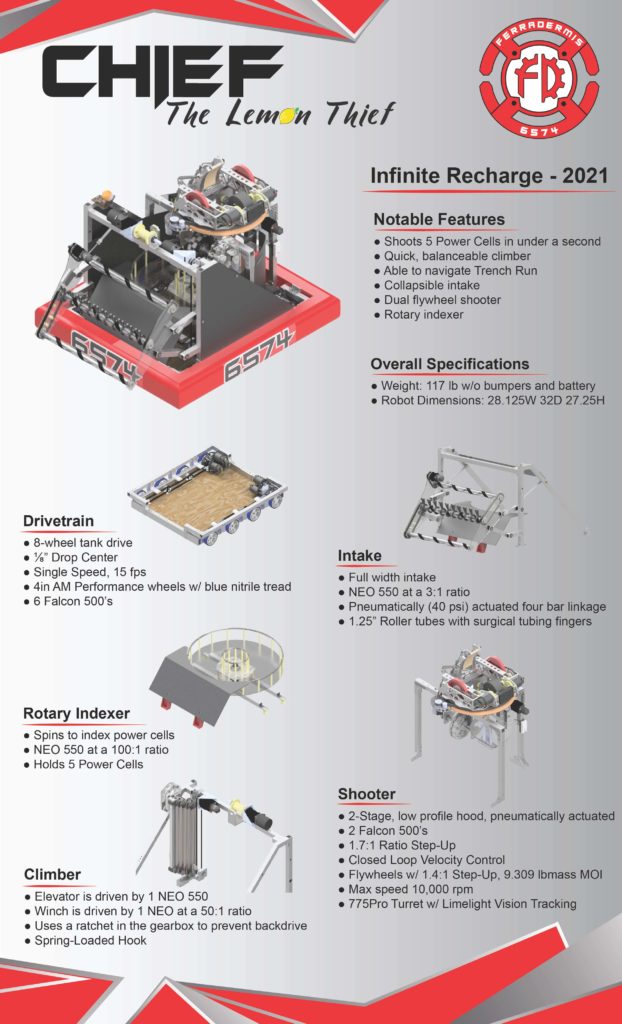
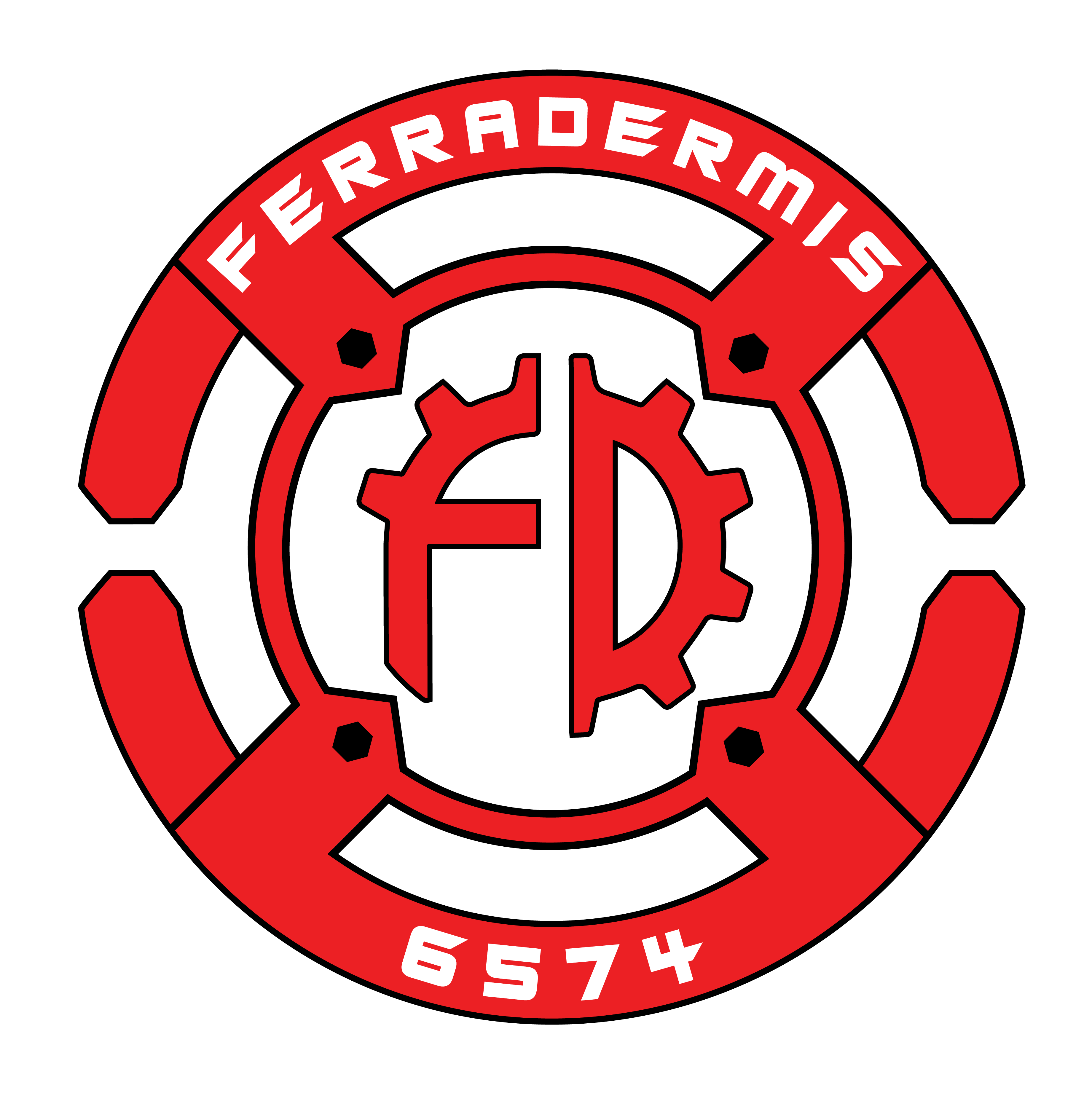
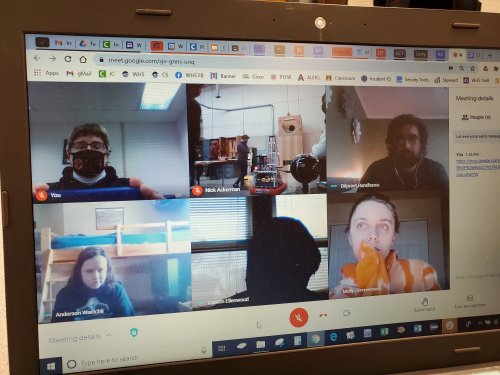
Comments are closed